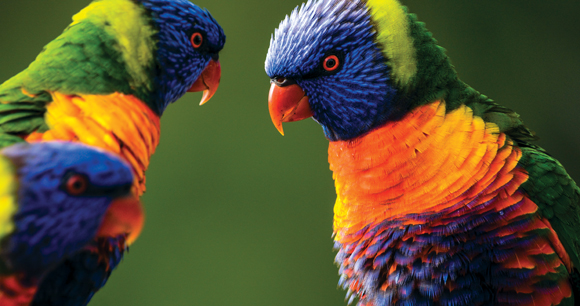For over 50 years, birds have been denied protection under the Animal Welfare Act (AWA). Twenty years ago, the animal welfare community won a lawsuit against the US Department of Agriculture challenging this exclusion. Since then, however, the USDA has stalled on issuing regulations to include birds. Meanwhile, in 2002, a law was enacted to declare that birds bred for research are not even “animals” as the term is used in the AWA.

After losing yet another court case over the delay, the USDA has begun the process of writing new rules to at least bring birds not bred for use in research under the protection of the AWA. During listening sessions and an open comment period for gathering public input, AWI urged the USDA to adopt solid standards of care for birds in the pet trade and entertainment (e.g., circuses and roadside zoos) and for wild-caught birds in research.
Industry organizations and individuals who want to continue abusing and exploiting birds without restriction argued against the move. They suggested, for instance, that industry self-policing has ensured appropriate care for birds. But if that were the case, we would not have the long litany of investigations for cruel treatment inflicted by bird breeders and others. Another specious argument made during the listening sessions suggested that birds covered by the Endangered Species Act or the Migratory Bird Treaty Act should be exempt from the protections of the AWA, despite little or no overlap between the laws.
Birds should receive the same level of oversight as other animals covered by the AWA. At a minimum, regulations regarding the humane care and welfare of birds should prohibit the sale of unweaned baby birds, require health certificates and record keeping, prohibit painful physical mutilations, and require enclosures that allow birds to express their natural behaviors, including flight.